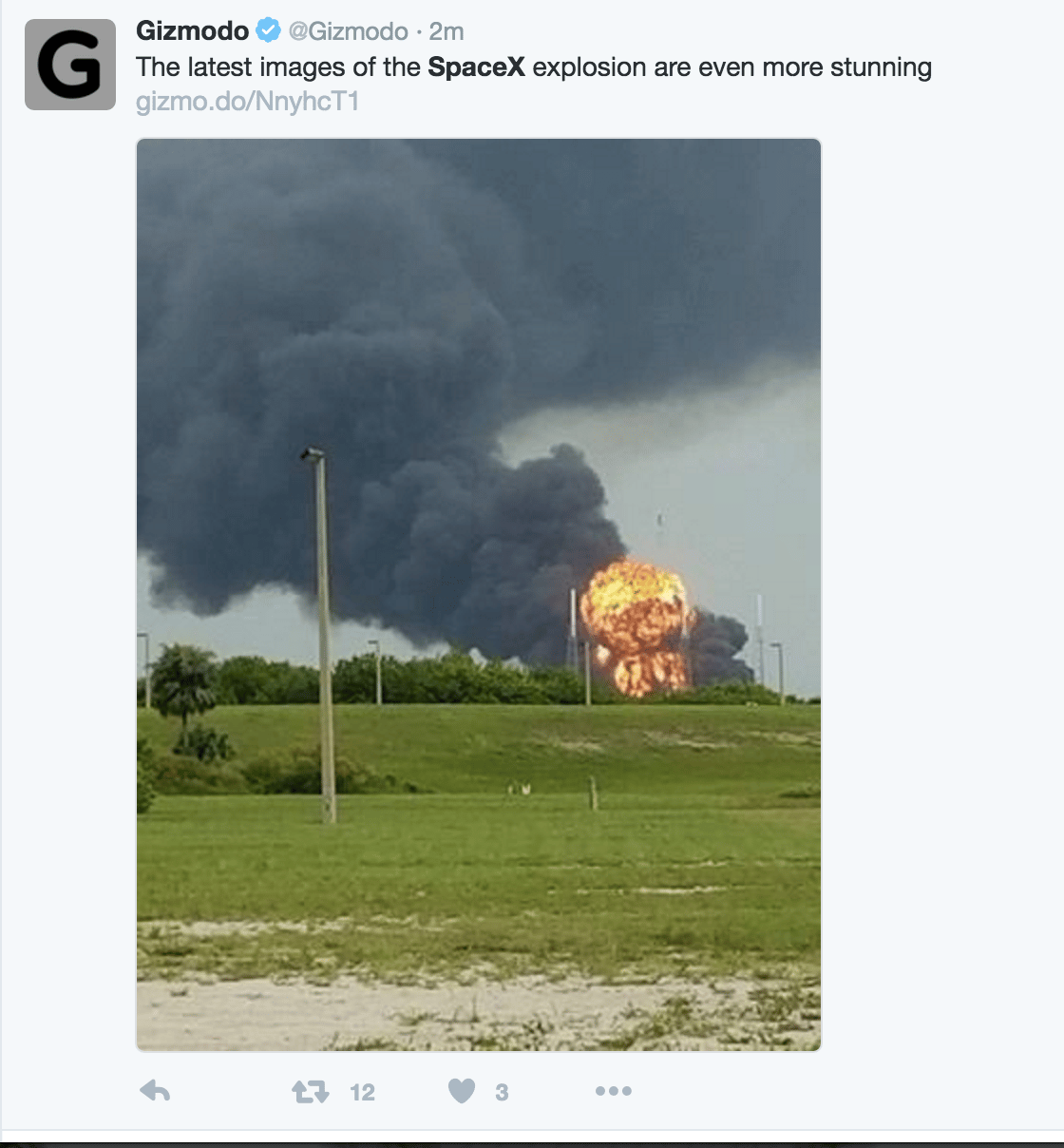United Launch Alliance's biggest challenger, Elon Musk's SpaceX, lost a rocket and its payload Thursday in a fiery blast on its Cape Canaveral launch pad. The company tweeted that the accident was due to "an anomaly" on the pad during testing before the September 3 launch date.
The 5.5 ton Amos 6 satellite made by Israeli company Spacecom was aboard SpaceX's Falcon 9 rocket and was also destroyed in the blast. It reportedly cost close to $200 million to manufacture. The cost was to be split between Spacecom and Facebook, who had intended to rent the satellite as means of spreading the social network to SubSaharan Africa, Mashable reported.
No one was injured during the blast, according to SpaceX, but it is not known as of now how this setback will affect the company's future and ongoing competition with ULA. In a similar July 15 incident, SpaceX lost a rocket and payload headed for the International Space Station, Quartz reported.
This financial setback comes just days after SpaceX closed a deal with Luxembourg-based SES to fly the first recycled rocket sometime this fall.
Multimedia business & healthcare reporter Chloe Aiello can be reached via email at [email protected] or twitter.com/chlobo_ilo.
Subscribe to Denverite’s newsletter here.














